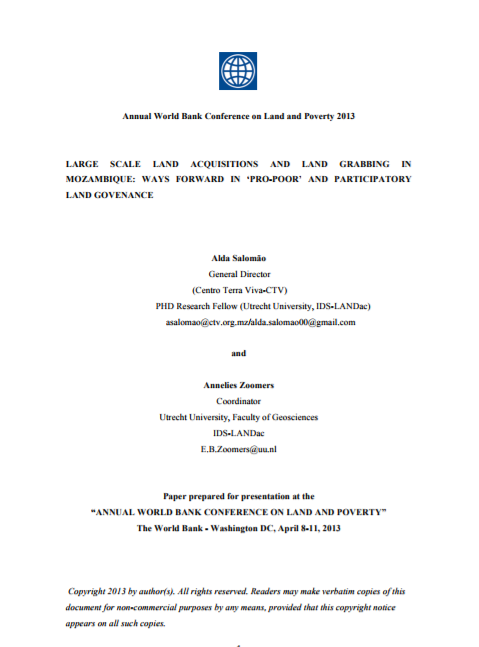Resource information
In international debates about land governance, Mozambique is often mentioned as an example of a country with favorable framework for local communities to benefit from landbased investments. However, it is also one of the countries highlighted in land grab debates for being one of the top countries where foreign companies and national elites are acquiring large extensions of land. It is increasingly clear that in spite of the favorable legal framework and pro-poor policies, local communities are under stress. This paper aims to show that land grabbing in Mozambique is, in some way, a manifestation of a State shift away from protecting the rural poor to protecting business interests. It is also a result of global pressures. Based on desk research and field work, the paper shows how land acquisitions are taking shape on the ground, the actors involved, and impacts being caused. Alternatives being tested by different stakeholders to overcome some of the problems hindering participation and equity are also addressed. The paper concludes that a single approach is not enough to address the challenges faced by rural communities and recommends combining different alternatives with actions that realign government positions with proclaimed policy principles on land governance.


